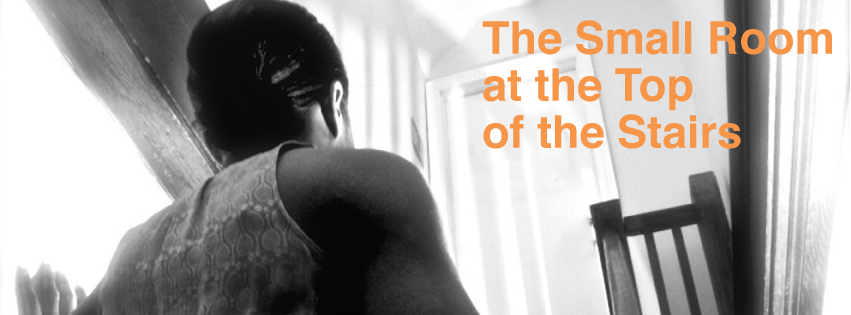Third-year YSD director Dustin Wills will be remembered as the guy who, recently, transformed the viewing experience at the Yale Cabaret. As Co-Artistic Director of the Yale Summer Cabaret 2013, he altered the playing space to create a deep thrust stage, doing away with the tendency to remake the place with every new play. In his production of The Maids, he goes further, creating a room, or rooms, within the room that is the Cabaret. The premise of this production is that the audience are voyeurs and eavesdroppers, positioned outside panes of glass, spying on what happens in someone’s apartment.

Whose apartment? Why, Madame’s. And exactly what are her maids, Solange and Claire, getting up to while their mistress is away? Solange plays Claire and Claire plays Madame. The point of the masquerade is that moment when the two, nearly fainting for a love they dare not give in to, bond in the death of someone—most likely (the real) Madame. Add to this the fact that Solange may or may not want her sister to die (as Madame), or may or may not want to die as her sister (dying with Madame). In other words, the world of The Maids is a world where desire and death (together) are the thrills. All the rest is masquerade.
Wills’ production adds an extra dimension to this dress-up game. Traditionally played with a cast of three female actors, The Maids was conceived by its author, Jean Genet, as enacted by a trio of male actors playing women. In following this intention, Wills’ The Maids becomes a drag show of sorts, with men masquerading as women, but this dimension also makes The Maids an even more complex play because we are watching men playact men who are playacting women. Wills’ cast begins in high camp and I’m sure a few playgoers seeing the play for the first time might assume they are watching a gay sex farce. Chris Bannow (Solange/Claire) and Mickey Theis (Claire/Madame) enact their parts with a kind of personal theatricality that we are encouraged to think is what goes on behind closed doors—and undraped windows—with these two, able to “act out” in private. Privy to this playacting within the play, we can only begin to determine its point as we watch, trying hard to follow the action and the whispers, as the pair, early on glad only in “tighty whities,” move about Kate Noll’s sumptuously tacky interior space.
Bannow and Theis are two of the most accomplished actors in the YSD program, and here they do some of the best work either has done. It’s not easy suggesting the subtle psycho-sexual drama between these two “sisters,” moving through a range of moods—passionate, bitchy, frightened, bullying, beseeching—but that is what this play requires. Bannow’s Solange is who we meet first, performing autoerotic acts solo—the entire play is in some ways a protracted sexual fantasy that is also an examination of power relations between classes and within gender. Much of the struggle here is between Claire and Solange who enact everything from sibling rivalry to lovers’ tiffs to actors’ differences of artistic vision. It’s all in the game. As the prettier one, who should be the object of Madame’s unspoken homoerotic desire, Theis’s performance is something of a revelation, as he finds, as it were, his inner little girl. As Madame, first-year actor Andrew Burnap has a regal height and a distracted air, but doesn’t quite seem the mistress of this threesome.
About the staging: Wills’ decision to enclose the playing space stems from his view that sight-lines in the Cab are always a problem. Certainly there is rarely the full frontal presentation common to most theaters. Here, the Cab’s strongest feature—the fact that the audience and the players occupy the same space—is obviated in striking fashion. Bold, innovative, the design for The Maids makes a drama out of our efforts to see the drama. What you see at the Cab is often dependent on your vantage point but, here, some vantages afford a view of the action on camera, as though watching a surveillance stream.
No more telling staging of how we pry—the idea of our age as one lacking in any sense of privacy is common—could be imagined. The implications about private life and the public imagining of intimacy provide a layer of suggestion to The Maids that goes beyond the old upstairs/downstairs dichotomy that can seem a bit stuffy by now. Inspired and arresting, The Maids is unsavory and seductive, making us all somewhat suspect, like people watching other people watch other people have sex.
The Maids By Jean Genet Directed by Dustin Wills
Dramaturg: Tanya Dean; Set: Kate Noll; Lights: Oliver Wason; Sound: Tyler Kieffer; Costumes: Hunter Kaczorowski; Technical Director: Rose Bochansky; Stage Manager: Molly Henninghausen; Producer: Lauren Wainwright; Creative Consultants: Michelle McGregor, Sophie von Haselberg; Sound Mixer: Sinan Zafar; Carpenters: Nick Vogelpohl, Sean Walters
The Yale Cabaret February 20-22, 2014


